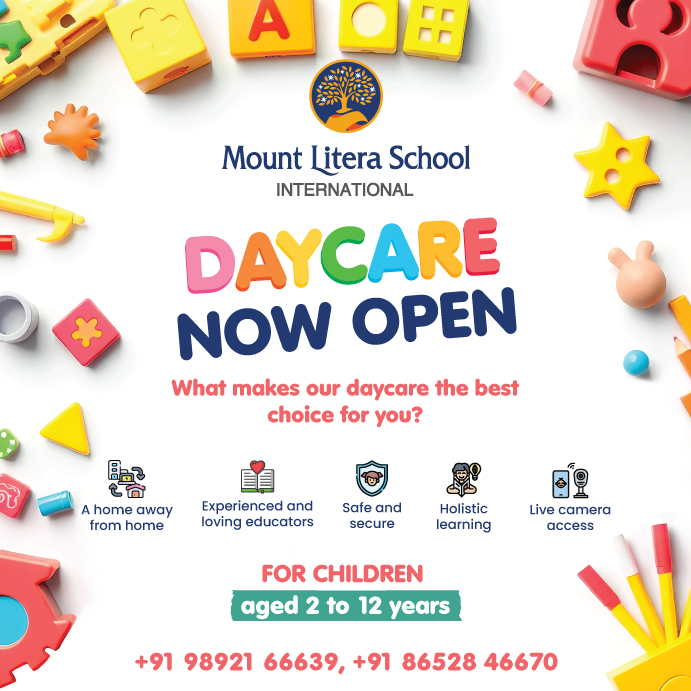Fostering a growth mindset: Encouraging Resilience and Lifelong Learning
2025-04-10
Discover how fostering a growth mindset promotes resilience, lifelong learning, and leadership skills for students, empowering them to excel in academics and beyond.
In today’s competitive world, success is not solely determined by talent or intelligence; it also depends on resilience, adaptability, and a willingness to learn. For students, cultivating these qualities early can pave the way for both academic and personal growth. This is where fostering a growth mindset plays a pivotal role.
A growth mindset is the belief that abilities can be developed through dedication, hard work, and a love for learning. Unlike a fixed mindset, which assumes intelligence and talent are static traits, a growth mindset helps students embrace challenges and view failures as opportunities for improvement. By integrating this approach into student development, educators and parents can nurture lifelong learners and future leaders.
What is a Growth Mindset?
Coined by psychologist Carol Dweck, a growth mindset emphasizes the power of effort and perseverance. Students with a growth mindset believe that their abilities are not fixed but can improve through practice and persistence. This outlook not only enhances academic performance but also builds resilience, a key trait for overcoming obstacles.
For example, when a student struggles with a math problem, a fixed mindset might lead them to think, "I'm just not good at math." In contrast, a growth mindset encourages thoughts like, "I need to try different strategies to solve this."
Fostering a growth mindset in children equips them with tools to face life's challenges with confidence and determination, essential traits for effective leadership skills for students.
The Importance of Fostering a growth mindset in Student Development
- Promotes Resilience:
Students learn to persevere in the face of adversity, viewing setbacks as valuable learning experiences. - Encourages Lifelong Learning:
A growth mindset instills a love for learning, motivating students to explore new subjects and skills beyond the classroom. - Builds Confidence:
Students develop self-assurance as they realize their potential for growth, boosting their willingness to take risks and tackle challenges. - Enhances Leadership Skills:
By cultivating a growth mindset, students learn to adapt, communicate effectively, and inspire others – essential qualities of great leaders.
How to Foster a Growth Mindset in Students
- Encourage Effort Over Results:
Recognize and reward hard work, even if the outcome isn’t perfect. For example, praise statements like, “I can see how much effort you put into this project,” instead of focusing solely on grades. - Teach the Power of “Yet”:
When students struggle, remind them that they haven’t succeeded “yet.” This simple word reinforces the idea that progress takes time and effort. - Model a Growth Mindset:
Adults play a crucial role in shaping students' beliefs. Share personal experiences of overcoming challenges to demonstrate the value of persistence. - Incorporate Leadership Opportunities:
Engage students in activities that require collaboration, problem-solving, and decision-making to enhance leadership skills for students. - Normalize Mistakes:
Teach students that mistakes are a natural part of the learning process. Discuss how failure can lead to valuable insights and innovations.
Leadership Skills and the Growth Mindset Connection
Leadership is a critical aspect of student development, and fostering a growth mindset directly contributes to developing effective leaders. Here’s how:
- Emotional Intelligence:
A growth mindset encourages students to empathize with others, a key quality for strong leadership. - Adaptability:
Leaders must navigate change and uncertainty. A growth mindset equips students with the flexibility needed to adjust to new challenges. - Problem-Solving:
Leaders face complex problems that require creative solutions. A growth mindset enables students to approach issues with an open mind and determination. - Team Collaboration:
Leadership often involves working with others. A growth mindset fosters communication, cooperation, and the ability to learn from peers.
By integrating leadership training into classrooms and extracurricular activities, educators can reinforce the connection between fostering a growth mindset and leadership excellence.
Practical Activities to Encourage a Growth Mindset
- Goal Setting:
Encourage students to set achievable short-term and long-term goals. Celebrate progress rather than perfection. - Journaling:
Have students reflect on their daily challenges and how they overcame them. This helps them recognize growth over time. - Role-Playing Scenarios:
Engage students in activities that simulate real-world challenges, promoting adaptability and resilience. - Group Projects:
Collaboration teaches students to value different perspectives, an essential trait for leadership. - Workshops and Seminars:
Introduce sessions on educating for sustainability and leadership to inspire students to take initiative in making a positive impact.
The Lifelong Benefits of a Growth Mindset
When students embrace a growth mindset, they unlock a world of possibilities. Here are some long-term benefits:
- Stronger Academic Performance:
Students develop effective study habits and overcome academic hurdles. - Personal Fulfillment:
The belief in self-improvement fosters satisfaction and a sense of accomplishment. - Career Success:
Resilience and adaptability are highly valued in professional settings, paving the way for successful careers. - Global Impact:
Students with a growth mindset often pursue opportunities to make meaningful contributions to society, embodying leadership and responsibility.
Additional Read: How Does the Diploma Programme of MLSI Prepare Your Child for the Real World?
Conclusion
Fostering a growth mindset is a transformative approach that prepares students for success in academics and life. By emphasizing resilience, adaptability, and a love for learning, educators and parents can help children navigate challenges with confidence and curiosity.
As students develop leadership qualities and embrace lifelong learning, they become equipped to drive change, inspire others, and shape a brighter future. Let’s work together to nurture a generation of resilient, adaptable, and passionate learners ready to take on the world with a growth mindset.
Blogs

Student-Led Conference


